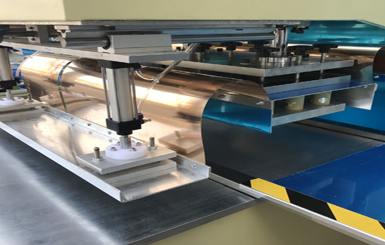Automation radically improves the quality in the industry. Welding machines, punching machines, plotters, hydraulic presses and dozens of other devices today rely more and more on automatic operation adapted to the current needs of the business.


Industry automation includes solutions that are technically adapted to the tasks outlined by the operator. The difference between automation and robotization in the industry is quite important in this context. While automatic machines for industry are strictly used with relatively narrow application possibilities, robots consider the energy, information or so-called machine learning. Effectively, they are subjected to changes in software and the ultimate purpose of the work performed. In this respect, the automatic machines operate utterly differently – in a narrower field.
Just as the first industrial revolution concerned mechanization and the invention of the steam engine, and the next one – electrification, the third version brought universal digitalization. It is computers that make industrial automatic machines controllable machines through software. In a situation where the degree of automation increases, and the efficiency, precision and importance of machines increase, digitalization becomes a natural direction of development. Industry today includes system integration or network creation; connects industrial automatic machines in networks and other technological formats.




